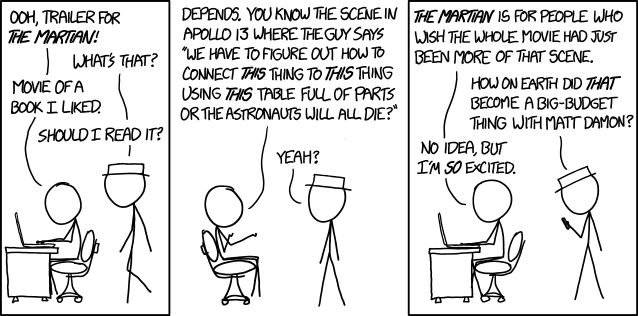read approx 19 June 2015
Unseen Academicals, Terry Pratchett

Published in 2009, fitting in the Ankh-Morpork series between Making Money and Raising Steam, this is a book that felt to me as though, like these, it was crossing the boundaries between Discworld and Roundworld rather too often. Like Going Postal and The Truth it was using an extended metaphor in Discworld and I felt, sometimes, that the escapist magic of earlier Discworld was giving way to a darker vision. In Thud, the vision was dark but the message was bright; in The Night Watch and The Fifth Elephant there was more darkness but a candle (a large, white candle) was held up against the darkness. But there was a nagging splinter, a thread that I didn't want pulled. In Thud it was the cubes of power and the implied equivalent of a Metro/Subway that Moist von Lipwig would doubtless be called to manage (but instead, steam power arrived). In Going Postal it was the Golem horses that upset the balance of the Discworld I love. It felt as though Discworld was going through rather more of an industrial revolution than I was entirely happy about - to the extent that on reading Dodger I became mentally confused about the world I was in in my mind.
So - UA is about football (the soccer kind) in as much as a Discworld book is about any one thing. Of course it's really about people, the way people treat each other, and about what it means to be an individual in a complex social setting. It uses the magical Discworld environment, and the accumulated 'world through a warped, and possibly slightly cracked, lens' background stories that it has built up, to examine the behaviour of people, human and otherwise, in various states of change.
It is a story about power and control and self determination, and about choice, and about chafing (although it missed the chance to make a joke about chafing dishes) and the consequences of having just one drink too many - whether a wheelbarrow of Winkles Old Peculiar or one or more glasses of sherry.
I think that Terry would have pointed to the Crab Bucket analogy as the clever creation in this novel, and it's a good one - though for me the scene when Juliet bakes a whole shift's worth of pies is the best of the night kitchen story arc. It's brief, it gets left a bit cold, but it says a lot about the seeking of worth which previously was all from Nutt's perspective.
I'm going to let you in on a secret here - I don't always get the references first time through. Sometimes I never do until someone points them out. So I got the 'My Fair Lady' references, but the Romeo and Juliet ones with the feuding families completely went over my head despite the obvious name. Terry tried to pack an awful lot into this book, in that sense. Nutt and his story is drawn from all sorts of places - the Uberwaldean ideas we saw in Raising Steam and The Fifth Elephant are enfolding all sorts of European/Transylvanian tales that link to the pagan ones we saw in Hogfather and Witches Abroad.
Better people than me have written about the Discworld books, and if you are reading this you either know the books enough to be able to quote them back to me, or you are about to - either way you don't need me to explain them to you. Let me leave it by saying, in case you hadn't guessed, I love these books, I miss Terry and mourn his loss, and am just glad I have the books that have been part of my life since Strata and The Dark Side of the Sun that I brought home from the school library in1981.

If, as I said two posts ago, it's true we all read 5000 books in a lifetime, then there are books I have read and which therefore claim their place in my 5000, which I resent and wish I'd skipped. None of Terry's books will ever be like that. Most of them will be read and reread many times in my life and that's fine with me. I've read UA three or four times already, and I find more to enjoy, and different things to enjoy, each time. The complexity and familiarity work together to keep them fresh - and the disquiet I mentioned earlier about their creeping towards our world is settled when I think about the power of metaphor. 'Have I found worth?' asks Nutt. Yes, you have.





